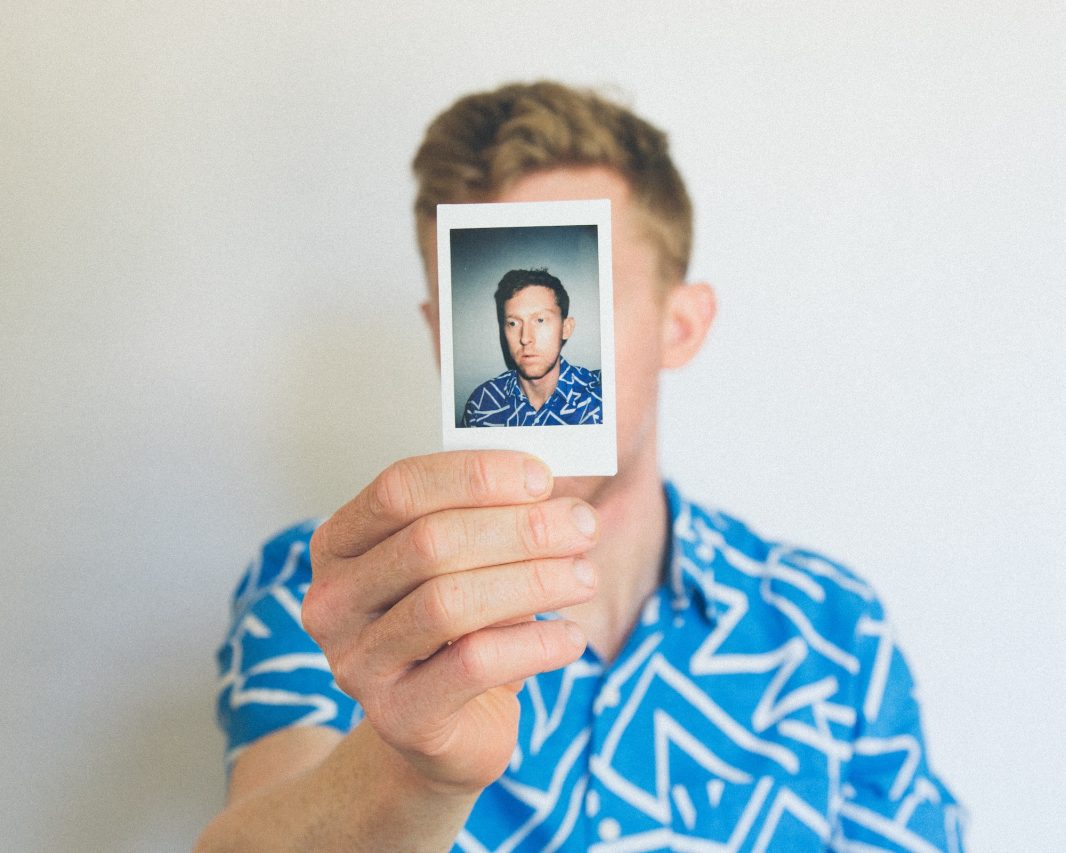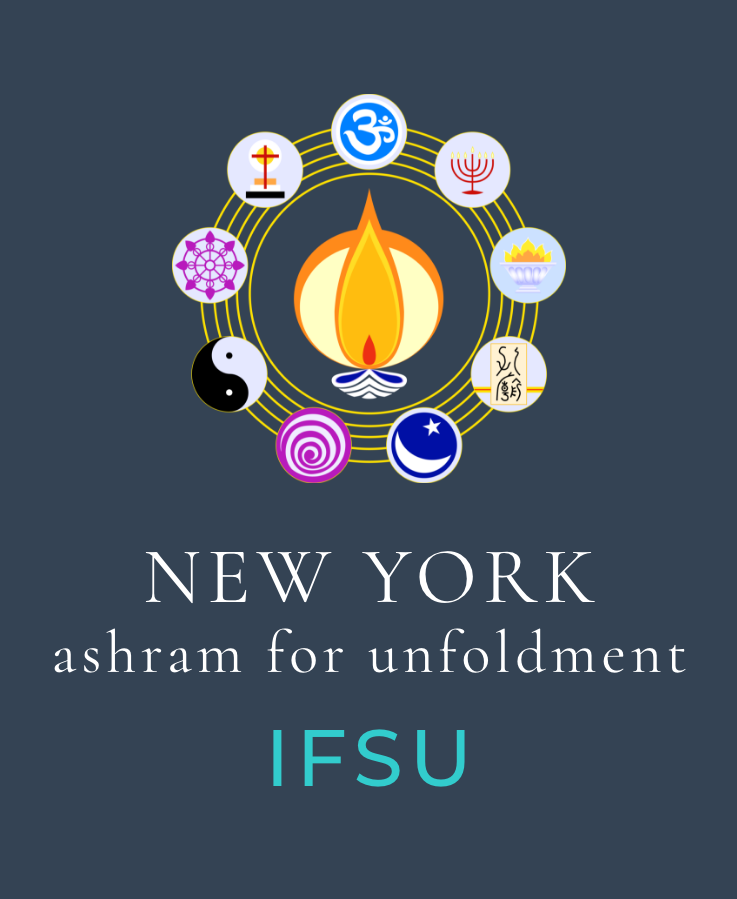Edited by Jeffrey Carr
Editor:
In this complex and evocative satsang, Gururaj explores the spiritual practice of Self-Inquiry, the essence of the path of Juana Yoga. Juana Yoga is one of the traditional paths towards Self-Realization. It is the path of relentless inquiry into the nature of the mind and the Self, until the Universal Self is recognized. It is characterized by the attitude, “Neti, Neti, Neti” or Not this, Not This, Not this.
With his characteristic wit, humor and word-play, Gururaj is exploring a paradox familiar to those who have experience with non-dual teachings. The only reality we can know if that which we experience. We experience reality through the senses, our thoughts and our emotional reactions: feeling, perception, sensation, emotions and thoughts. These are undeniably real, because we directly experience ourselves and the world through them. But here’s the paradox: although the experience itself is undeniably real, the objects of our perceptions are not. We see the world through our subjective impressions and patternings, and what we see is itself “empty”of an inherent, self-sustained existence. Furthermore, we ourselves do not really exist in the substantial, independent way we think we do. We are collections of identities, memories, momentary states of being. These are, as Gururaj explains, the products of our impressions, or samskaras.

So the experience itself is real, but the objects of our experience and the ego-self that experiences our apparent existence is not. But it is too easy to simply assume that the world is mere illusion, or “maya”. Gururaj is explicitly rejecting this idea that the world of sense perceptions, human relationships and our own sense of self is somehow unreal or insubstantial. Gururaj asks us to enthusiastically embrace the world of our experience. But how do we do this if we know that the world is an illusion, and that we ourselves are also illusion? This is the paradox that he explores in this satsang.
Gururaj always started off a satsang with a question. In this case, one of the chelas asks the question in the form of a riddle or poem. Gururaj answers the question very playfully at first, making gentle fun of the form of the questioning and the questioner. But the questioning itself he takes very seriously.
First, the Chela asks:
Beloved Guruji, this question is in the form of a riddle:
I am that which causes awareness to flow
from the grossness of the lower mind
to the un‑differentiated bliss of the superconscious.
I am not mind, but upon me the mind rests.
I do not move, yet through me all things move.
I am neither this nor that.
What am I?
Bullshit! Who am I if I am not the mind? Who am I if I am not the body? And what makes you presume that you are not the body and not the mind? What point of reference do you have to tell if you are not the mind and not the body? Show me that point of reference!
When I say to myself, “I am that I am,” who is this “I am” that “I am”? Who is this “Brahmasmi; “I am Brahma”? Who is this that could say, “I and my Father are one?” Who is this that could say that “I”, as the mind and body, is non‑existent? What part of you is existent to make you cognize your non‑existence?
You don’t know, that is for sure. Therefore, I said “bullshit.”
Gururaj Ananda Yogi’s reply
provokes much laughter:
Your mind is a reality. Your body is a reality. And the spiritual self within you is a reality. But it is only the mind that can cognize its own realness—which, at the same time, is also an erroneous (cognition). You can say, I am this body. But this body has been constantly changing. Once I was an infant, then l grew into adolescence, and then I became an old man- although not so old, really! So, this body is the same body, but over a period of time ‑‑ what you regard to be time –this body has gone through various changes. Like putting on a little meditational tummy! So, (although I may experience that) my reality lies in my body and my reality lies in my mind, who is that which perceives this particular form of reality?
The spirit that is within you, the Divinity that is within you, is non‑cognizable. And (this spirit or Divinity cannot) cognize anything besides itself in its own cognition. In other words, the spirit cannot cognize itself nor can it re‑cognize itself. (For example), the mind says that this is a handkerchief. Why does the mind say this is a handkerchief? Because my mind contains a certain recollection of experiences that has gone through me in this lifetime, or even in past lifetimes. (And these recollections) cause me to cognize this as a piece of cloth to be used on my nose. But where does this (cognition) come from? What (is it that) tells you that this is a nose and that’s a handkerchief? You can go back further into this. Once you recognize the nose and you recognize the handkerchief, you can go back to ask yourself the question: Who is it that is saying, ‘this is a handkerchief and this is a nose’? Who is it that is saying that? And when you find yourself saying that (it is) my mind that is saying this, then you can ask yourself what (is it that) perpetuates this mind in its mold of having this particular kind of cognition?

And you go on and on like that until you reach a point, which is zero. Only then can you say, “I’m not the body.” Only then can you say, “I’m not the mind.” Now, when you say I’m not the body and I’m not the mind, you are again asking yourself: Who is it that is sayingI’m not the body? Of course, I know that I can touch, feel, smell, taste, go to bed and make love, go to the toilet. So, (I ask myself,) isn’t the body functional? Of course it’s functional. Then why do I deny (that I am) the body? I deny the body because I feel within myself‑‑or rather some force is feeling within myself‑‑that I am far beyond the body and the mind. But the greatest mistake that is being made by various theologies is the denial of the body and mind. So, let’s look at it from a different angle. Do not deny this body. Do not deny this mind. And do not deny that which cognizes the body and the mind.
So how are you dealing with yourself, then? We’re still going to come to the cognitive factor. But at this moment, how do you stand? You stand in the position of saying: my body exists, my mind exists, and the cognitive factor also exists, so therefore I am existence. And being existing, I can deny nothing. For I am that I am. Now, let’s perform some operations. Any volunteers? I’ll cut you up into pieces. I’ll put your body there, your mind there, and your cognitive-self there. Get hold of a knife for me, please!
Question: Who’s saying that? That stupid ego self.
What is the ego worth? The ego is worth nothing, because it is just a formation of patterns which you have superimposed upon yourself from the various experiences that you have gone through, which have left impressions. And those impressions are what we call the ego. If I put my hand on this table and then I remove this hand, an imprint is there. The hand is not there anymore, but an impression or an imprint of the hand is existing on this table. Get out your magnifying glass and you will see it. What reality is there in this imprint? This imprint allows the cognition of me as a body, and this imprint allows the cognition of me as a mind. My body and mind are totally dependent upon this imprint. So what is the reality of this imprint? Nothing. It’s only an impression created through the patterns of experience. But if I deny this imprint, and don’t attach any value to this imprint in the recognition of the existence of this body and mind, then I am presuming that this body and mind are real with something that has no substance and which is just an impression.
So, what have we done so far? We have accepted the reality of the mind and the body, and, at the same time, we are denying the mind and the body. Because both are true. You are not the body, yet (you are) the body; you are not the mind, yet (you are) the mind. Then what is your reality? And how are you going to prove this reality? You can only prove it by inference. Or by the factor that reality requires no proof. It exists because of its own existence. The only time you can prove reality is when you have a reference point. And if you do not find a reference point‑‑and where can there be any reference point as far as Divinity is concerned? So, existence proves itself by its very existence. You can’t see the air that you are breathing now, but you are conscious of the factor that you are breathing. You are conscious of it, or perhaps you are non- conscious of it. There is consciousness and non‑consciousness. Non‑ consciousness means you are not aware.
And conscious means that you are aware. Now, what proof is there of awareness? Does awareness require any proof? Does the light burning there require any proof that it is burning? It is the very act of giving light that is its own proof. Do you see?

So, we’ve come to the point of asking ourselves whether or not everything in life requires to be proved. No, you don’t need to prove anything. This is because when it comes to the highest level, you need a point of reference (to prove anything). And when the highest level is being the One, without a second, (then you) cannot have a reference point. I exist. I exist because I exist. That’s all. And because ‘I’, the real ‘me’ has no reference point that exists, then I can only refer back to a grosser level of the mind and the body, which finds its existence in that which I cannot prove is existing. So, I am taking this highest factor of life and bringing it down to its grossest factor, and then defining the grossness of this gross factor at its own level. That is what I can compare things with. When I reach the point that is beyond comparison, then I am pairing things up in comparison. There has to be two to compare. But if I want to exist as I am in my full totality, then don’t I lose the idea of comparing myself to anything else? The very moment I lose the idea of comparing myself to any subject or object, then that is the very moment I will lose the ego-self, that imprint that is existing in the impressions of that experience.
Question: Then where will “I” be?
I shall be incomparable. I shall be the source of existence itself, which I am. Not in reality, but in actuality. For reality changes from day to day. What is real to you today might be unreal to you tomorrow. You see? But when I become actual, when I become the source and recognize that source within me, or the source recognizes itself, then I can say: let me enjoy this body, because it is a product of a collection of impressions. And let me enjoy this mind, for it is a product of a collection of impressions. And if they are there, then let me make the best use of it
We are fusing two factors here. That which is created by impressions‑‑or maya or illusion‑‑is brought into reality, and reality is converted into illusion. So, I make the best of both worlds. If at this moment I feel like getting up and embracing you, I’ll do it. And there’s no force or power in this world that’s going to stop me. But I’m not going to be attached to an impression (samskara).
For example, let’s say that I loved a woman very much. I was deeply involved with that woman, and she has left me. She has jilted me or died or jumped in the lake or whatever. Now, is she there or is she not there? She’s dead, we know. But is she there or is she not there? She is there because you think she is there. You think she is there is because of those impressions, those experiences, and you are reliving something that is far in the past and which has no reality today. (The impression) has become an illusion, because she is no longer there. I had developed a dependency upon her when she was there, but what am I living on now? (I am living) in dependencies. How can a man or woman or anyone get rid of these memories, these impressions? Should I being a different life in such a way that these impressions can be obliterated?
Now if this should happen to me, I would go out and find myself a beautiful girlfriend. After all, I have my physical needs. Everything is biological, as I might need to go to the bathroom. I need to eat food to sustain the body. I need some comfort, to peer into my beloved eyes and look deeply and float away. I am existing with the reality that is my body and my mind. Although in essence it is unreal, for this momentary three score and ten, let me do the best with it as I can. Why not? Who can deny me that right? And why should it be denied to me? You think that that all of these organs we have are just for the show of it? Do you think I have ears, but should not hear? Or that I have eyes but must not see? Or a nose and may not smell? Or any other organ of the body that has been created through evolutionary processes, but may not be used? Why can I not use every organ in this body of mine to its fullest potential? Use them honestly and sincerely, and not lustfully or selfishly? These monks with all of their monkey business may say that we should become celibate, or become this or that. I say, become yourself! Be yourself!

Be yourself. How can I make myself be myself? The answer to this riddle is so simple. Do you know the beautiful hymn that I like so much, that goes “Lead thou me on, kindly light…one step at a time is enough for me…” It goes on like that. It’s very beautiful. It’s my favorite hymn. What can I do to make myself into what I want myself to be? First, I must admit to myself that I’m living a fragmented life. Part of my mind is pulling this way, part of my mind is pulling that way, part of my mind is floating up there in Chicago and still another part is somewhere in some heaven or some hell or wherever that has no existence in reality. If my wife dies tomorrow, I don’t even want to know where in hell she is, although I’m sure she will be in heaven, because she goes through hell with me! It’s no job looking after a guru!
So you must admit to yourself that you are fragmented. Lead thou me on, kindly light to integration away from fragmentation. Let me be whole. Let me function in this life holistically. Let me no longer find any discriminatory factors between body, mind, and spirit. Let me regard it to be one continuum. When you find this continuum of yourself, mind, body and spirit, through spiritual practices and meditation, then this continuum will extend and develop so much that the entire universe becomes you, and you become the universe.
So then what importance would dear Lata assume in my life? She was part of my existence for a certain period of time, we served each other well, we did the best for each other, and the body had to drop away, so it dropped away. What can I do about it? Am I going to mope about it all the time and make this little life that I’ve got left‑‑I don’t know how long I’m going to live‑‑two years, five years, ten years, fifteen years‑‑and make those few years that are ahead of me into a living hell and a misery? Every thought I think in a miserable way is definitely going to affect the one that I have loved and that is not here with me. So, I am doing her a disservice; I’m not doing her a favor. Because my misery (will affect her) while she’s in a different dimension.
So what am I going to do about existence and non‑existence? I’m both. I am existing, and at the same time, the impressions upon which I’m existing are non‑existent. So, someone I love had to depart through no fault of mine. I’ve done my best, and so has she. So, what am I going to do about it? Mope? Get myself into a mental tizzy and become dizzy? Let me tell you that 99.999% of the problems in your mind are self‑created without any real substance. So that which you have created without substance… very easy way out of it‑‑pull the chain!
That is the secret of life. Forget the past. It is gone. Do not project yourself into the future. It might not be there. But live for this moment. Live for this moment. Then you’ll preserve your physical health, you’ll preserve your mental health, and you’ll become integrated in mind, body and spirit. And you’ll enjoy life. For life is joy. As I always say, enjoy the joy. Why deny yourself that beautiful joy of this so‑ called existence, when you can have fun? What’s wrong with fun? Enjoy it. But be honest and sincere, that’s important. If I should kiss you‑‑I don’t know which one‑‑I would be doing it with total honesty and sincerity and without any thought of lust. Because in that peck on your cheek I’d be imparting to you something that you need to change your entire lifestyle and make you appreciate that which you think is suffering. And to change it very sweetly and beautifully. That’s the way we function.

